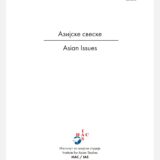International Commercial Arbitration in BRICS – A brief overview with a comparative approach on recent developments
Por José Nantala Bádue Freire
1. Background – International Law, BRICS and International Arbitration:
Brazil, Russia, India, China and South Africa, beyond integrating one of the most interesting inter-regional mechanisms of our time (the BRICS group), are also important jurisdictions for the development of international arbitration, playing strategic roles in their own regions, but also in global scale.
During the 1990´s, BRICS countries were struggling to surpass their own hurdles and looking for a brighter spot in last century´s “decade of international law”[1]. To be engaged in this environment, many countries started to adapt themselves to the main goals set by UN for the next decade: “(a) To promote acceptance of and respect for the principles of international law; (b) To promote means and methods for the peaceful settlement of disputes between States, including resort to and full respect for the International Court of Justice; (c) To encourage the progressive development of international law and its codification; (d) To encourage the teaching, study, dissemination and wider appreciation of international law.”[2]
Some relevant and successful examples of the engagement of the international community in the development of International Law during the 1990´s are: a) the Rio Conference (ECO-92); b) the success of the Uruguay Round (WTO) in 1994; c) the rise and strengthening of regional organizations (such as the EC, Mercosur, NAFTA, etc); d) the adoption of ad hoc international courts for war crimes (Rwanda and Yugoslavia)[3], and; e) the Organization on Prohibition of Chemical Weapons (OPCW).
As highlighted above, the promotion of peaceful methods of dispute resolution was part of the main goals set in the UN Resolution 44/23 of 1989. For this reason and following the great wave of internationalization that took over the 1990´s, developing and less developed countries started to look for international trends to attract foreign investment and promote their international insertion. Therefore, adopting arbitration in their legal frameworks clearly represented an important step to be taken in this path.
2. BRICS, International Insertion and International Arbitration:
As all BRICS countries were opening their markets to international trade during that decade, proper regulations on international arbitration in their domestic laws became a strategic issue. Russia was the first country of the group to do so, passing a specific regulation on the subject in 1993. China followed the line in 1995, while India and Brazil did the same in 1996. South Africa already had, since 1965, an arbitration act regulating domestic and international arbitration, although not in accordance with the international standards set by that time.
Other relevant issue regarding the regulation of international commercial arbitration among BRICS is that, during the 1990´s, all of them but Brazil were already members of the New York Convention on Recognition and Enforcement of Foreign Arbitral Awards (1958). Due to some political and constitutional issues, Brazil only ratified the New York Convention in 2002. For this reason, at least for the recognition and enforcement of foreign arbitral awards, the legal grounds were (or, at least, should have been) similar amongst BRICS.
Moreover, UNCITRAL Model Law on International Arbitration of 1989 played a relevant role on the harmonization of arbitration laws in global scale. During the 1990´s, the arbitration laws and acts adopted by Brazil, Russia, India and China were influenced in different levels by the Model Law. While India and Russia practically imported in full its text to their legal systems, Brazilian law was deeply inspired by it and Chinese law, despite adopting many concepts and ideas clearly related to the Model Law, preferred a more controlled regime, at least for domestic and “foreign related” arbitrations[4]. South Africa, however, did not react to the Model Law until 2017.
The 21st Century brought many other challenges to the international community, and in its first decade, many advances experienced in the 1990´s were jeopardized by major global events, such as the September 11th terrorist attack in 2001 and the global economic crisis felt in 2008, related to the subprime scandal in USA. Those issues and the discussions held in Multilateral Forums (such as the General Assembly and G-20 meetings) raised different arrangements in the international community. As developing and less developed countries were claiming for better access to the decision-making processes in the Multilateral institutions, the developed economies were fighting to hold their positions. That was, in fewer words, the landscape in which the BRICS group (and many other South-South cooperation efforts) was born.
During the first decade of this century, Arbitration also developed in different levels amongst the BRICS. Brazil rapidly became a global player in Arbitration, due to the safe environment created by local Courts and authorities, both for domestic and international arbitration. China was developing fast and, as a result, its participation on international arbitration also grew substantially in this period. Russia was experiencing a “boom” of local arbitration institutions, while the famous and multilevel Yukos case brought this jurisdiction even more to the spotlight. In India, some controversial issues were raised upon public policy intervention on the enforcement of international awards, and even the application of the New York Convention itself, due to a major decision rendered by the Supreme Court, such as the famous Bhatia International vs. Bulk Trading S.A[5].
South Africa, on the other hand, was facing a movement against the local development of arbitration, due to the heavy criticism brought by local authorities, such as the Judge President of the Cape, Mr. John Hlophe, who argued by the time that “arbitration is inappropriate as it undermines the legal system and the transformation of the judiciary, neither of which can be compromised”[6].
3. Recent developments:
During the following decade, however, Brazil, Russia, India and South Africa struggled to update their local regulations on Arbitration. In 2015, Brazil reformed law 9.307/1996 to promote and provide more legal certainty to arbitration with government related parties, but with no particular effect on International Arbitration. In the same year, Russia[7] and India[8] updated their International Arbitration laws, adopting the 2006 revised text of the UNCITRAL Model Law. Afterwards, in 2017, South Africa also internalized the Model Law 2006 text, which considerably improved its legal framework on International Arbitration.
Regardless the arbitration law in China is still the same since 1995, a decision rendered by Guangzhou Court in 2020 adopted the “seat standard” for the first time in history, providing domestic treatment to an award derived from an arbitration proceeding sat in China, but administered by a foreign institution. This decision, however, needs the confirmation of the Supreme Court to be used as effective precedent in other cases[9].
In Brazil, the controversial Ometto vs Abengoa decision, rendered by the Superior Court of Justice (“STJ”) in 2017[10], set an important standard for arbitration practitioners when faced with Brazilian elements (applicable law, seat, parties and/or arbitrators) in their cases. STJ established a prima facie consideration on conflict of interests, pushing parties and arbitrators to check and disclose all possible facts that would raise reasonable doubts on the impartiality of the arbitrators. This high-level standard set by STJ is also influencing in some lower court decisions discussing the validity of domestic arbitration awards, although it was related to a foreign award[11].
India and Russia are also trying to improve domestic arbitration by adopting controversial standards and governmental control over the practice. While Russia, since 2016, imposes to any institution operating in the Country a “Permanent Arbitration Institution” certificate, rendered by the Ministry of Justice[12], India, since 2019, established a minimum standard for a professional to be eligible as an arbitrator[13].
Despite the common criticism on this kind of state intervention in arbitration, it is important to remember that different jurisdictions face their own challenges using the measures available to them. As an arbitration practitioner and enthusiast, I hope all those efforts are being spent for the sake of the institute and the development of more efficient and internationalized dispute resolution systems in BRICS countries.
4. Final words:
Arbitration is a reality in all BRICS countries nowadays, with consistent development in each of them. The struggle to adopt international standards and, somehow, adapt them to each of their legal systems, traditions and challenges is natural, and may be interpreted, in my view, much more as enriched opportunities for the development of the institute in global scale than simply classify such idiosyncrasies as obsolete, delayed or prejudicial.
I strongly believe that, if we consider the advances experienced in all BRICS in the last 20 to 30 years regarding arbitration regulations and practice, the big picture we face brings much more hope than fear.
[1] Resolution 44/23 of 17 November 1989, the General Assembly declared the period 1990-1999 to be the United Nations Decade of International Law.
[2] The United Nations and the Development of International Law. Available online in https://www.un.org/law/1990-1999/index.html. Accessed in April, 24, 2021 – 11:30 pm.
[3] Which also judged cases related to genocide and crimes against humanity.
[4] Chapter VII of the Chinese Arbitration Law.
[5] Information on the case may be accessed by the following link: http://www.supremecourtcases.com/index2.php?option=com_content&itemid=1&do_pdf=1&id=201
[6] Dennis M. Davis; Gilbert J. Marcus; Jonathan E. Klaaren, The Administration of Justice, 2005 Ann. Surv. S. African L. 816, 846 (2005).
[7] Law 5338-1, as amended in December, 29th, 2015.
[8] The Arbitration and Conciliation (amendment) Act 2015.
[9] You may find some greater developments on this case in the following Tereza Gao (2020) paper: http://arbitrationblog.kluwerarbitration.com/2020/10/12/arbitrations-in-china-administered-by-foreign-institutions-no-longer-a-no-mans-land-part-ii/
[10] You may find comments in English on this decision, as provided in the following link: https://arbitrationlaw.com/library/ometto-case-analysis-decision-taken-brazilian-superior-tribunal-de-justi%C3%A7a-wamr-2017-vol-11
[11] Appeal # 1056400-47.2019.8.26.0100, São Paulo Court of Justice. August/2020.
[12] Article 44 of the Federal Law 382-FZ.
[13] More details on this subject may be found in this Baker and McKenzie article, written by Aditya Vikram Bhat, Priyanka Shetty and Adoksh Shastry: https://globalarbitrationnews.com/baker-mckenzie-international-arbitration-yearbook-2020-2021-india/






